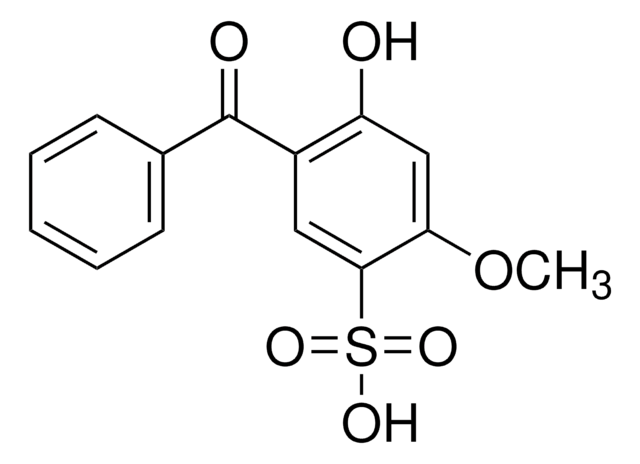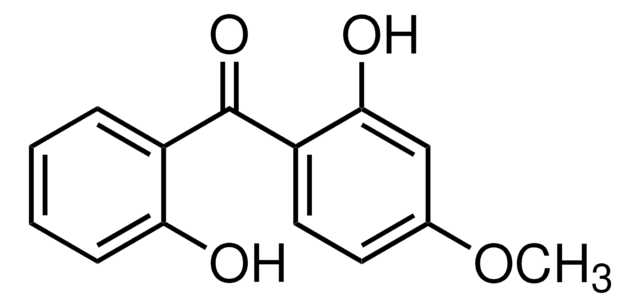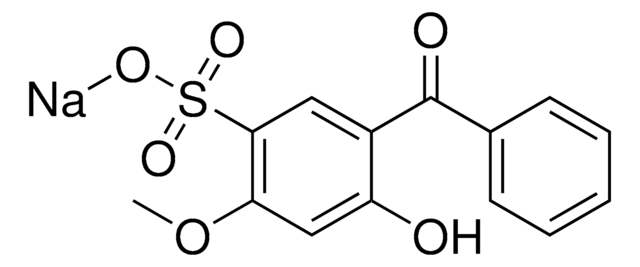09649
5-Benzoyl-4-hydroxy-2-methoxybenzenesulfonic acid
≥97.0% (HPLC)
Synonyme(s) :
HMBS, Sulisobenzone
About This Item
Produits recommandés
Pureté
≥97.0% (HPLC)
Forme
powder
Impuretés
≤10% water
Chaîne SMILES
COc1cc(O)c(cc1S(O)(=O)=O)C(=O)c2ccccc2
InChI
1S/C14H12O6S/c1-20-12-8-11(15)10(7-13(12)21(17,18)19)14(16)9-5-3-2-4-6-9/h2-8,15H,1H3,(H,17,18,19)
Clé InChI
CXVGEDCSTKKODG-UHFFFAOYSA-N
Vous recherchez des produits similaires ? Visite Guide de comparaison des produits
Mention d'avertissement
Warning
Mentions de danger
Conseils de prudence
Classification des risques
Aquatic Chronic 3 - Eye Irrit. 2 - Skin Irrit. 2
Code de la classe de stockage
11 - Combustible Solids
Classe de danger pour l'eau (WGK)
WGK 1
Point d'éclair (°F)
No data available
Point d'éclair (°C)
No data available
Équipement de protection individuelle
dust mask type N95 (US), Eyeshields, Gloves
Faites votre choix parmi les versions les plus récentes :
Certificats d'analyse (COA)
Vous ne trouvez pas la bonne version ?
Si vous avez besoin d'une version particulière, vous pouvez rechercher un certificat spécifique par le numéro de lot.
Déjà en possession de ce produit ?
Retrouvez la documentation relative aux produits que vous avez récemment achetés dans la Bibliothèque de documents.
Les clients ont également consulté
Notre équipe de scientifiques dispose d'une expérience dans tous les secteurs de la recherche, notamment en sciences de la vie, science des matériaux, synthèse chimique, chromatographie, analyse et dans de nombreux autres domaines..
Contacter notre Service technique









![2,2′-Methylenebis[6-(2H-benzotriazol-2-yl)-4-(1,1,3,3-tetramethylbutyl)phenol] 99%](/deepweb/assets/sigmaaldrich/product/structures/236/824/ce89085c-b9e1-4ea0-8157-44b6f9466ed6/640/ce89085c-b9e1-4ea0-8157-44b6f9466ed6.png)



